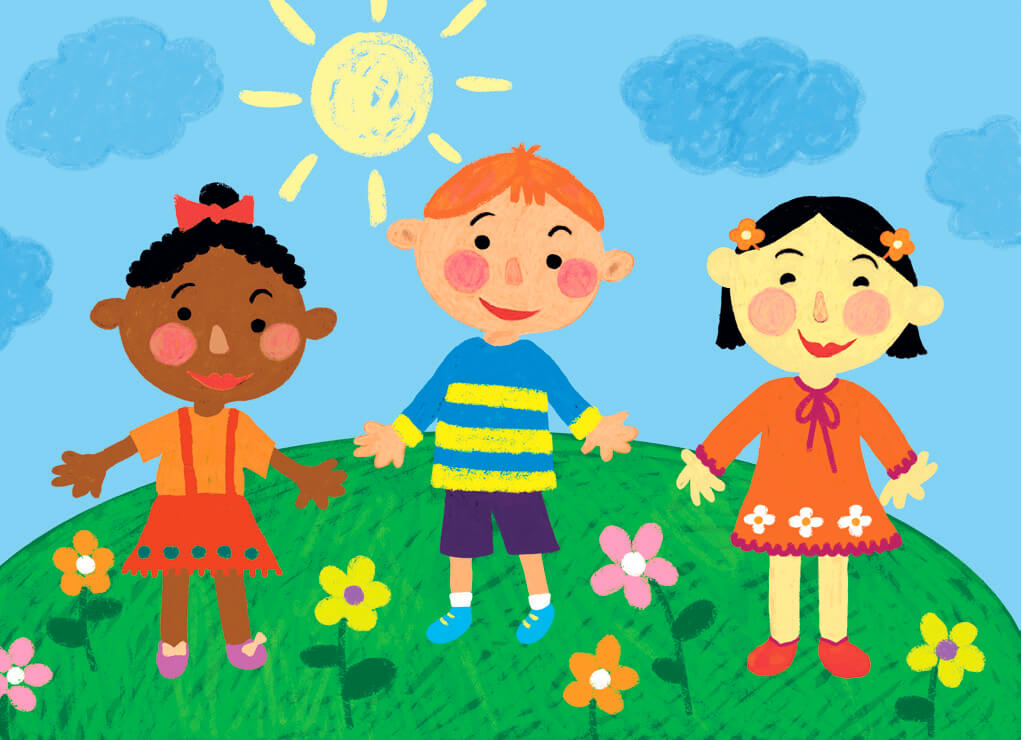Purpose: Children and young people to know their rights, but also to develop an idea of the importance of fulfilling their obligations.
Increased attention in complying with one's own obligations, as well as understanding the possibilities for each individual to seek their rights.
As we said in the previous topic about interpersonal relationships, each of the
you are a separate person. Every person in our society, regardless of whether he is a student, an employee in a company or has another social role, has his own rights and his own obligations. For example, as students at school, you have the right to:
- to be educated and brought up in a healthy, safe and secure environment;
- to be respected as active participants in the educational process;
- to choose between the study subjects or modules offered by the school to study in the elective study hours;
- to receive library and information services;
- to receive information about your education, upbringing, rights and obligations;
- to receive general and additional support for personal development;
- to be informed and consulted in connection with the choice of education and/or profession;
- participate in extracurricular activities of your own choice;
- to give opinions and suggestions about school activities, including elective lessons;
- through the forms of student self-government, to participate in the discussion when solving issues affecting school life and the school community, including the school curriculum;
- to receive assistance from the school and from the local self-government bodies in expressing your opinion on issues that directly affect you, as well as in participating in the life of the community;
- to be encouraged with moral and material rewards;
- to receive consultations from the teachers - including the students on an independent form of education;
- to be protected by the school when your personal dignity is violated and your human rights are violated;
- to use the entire school material and technical base for free and in extracurricular time to develop your interests and abilities;
- to receive scholarships under the conditions and according to the order determined by the Council of Ministers.
In addition to the things you are entitled to and are entitled to, in your role as students you also have your obligations, namely:
- attend and participate in classes and activities;
- to preserve the authority of the school and the school community and contribute to the development of good traditions;
- to respect the rights, honor and dignity of others, as well as not to apply physical and mental violence;
- not to participate in gambling games, not to use tobacco and tobacco products, alcohol, narcotic substances and energy drinks;
- not to carry weapons, as well as other objects that are a source of increased danger;
- carry your student ID card in and out of school;
- to present to your parents and pedagogical specialists your school record and correspondence notebook;
- to observe the rules of conduct in the class and at the school;
- to comply with the regulations for the institution's activities;
- not to obstruct the normal flow of school hours with your behavior and actions;
- not to participate in political parties and organizations until reaching the age of 18;
- to protect the material base and the cleanliness of the school territory, not to throw waste in the classrooms, corridors and in the school yard;
- not to commit anti-social acts;
- not to leave the school and the school yard without permission during school hours;
- not to go out to the areas in front of the windows of the premises, as well as to places threatening your life in the school building;
- not to enter with chewing gum in classes and between classes;
- not to listen to music in the classroom and corridor of the school;
- to greet politely;
- not to bring snacks to class;
- to attend school in appropriate clothing and appearance;
- to be prepared for the relevant class, having secured your school books, the necessary educational and technical aids, work or play clothes.
Understanding the idea that every person, every person has rights and obligations, makes your school life, as well as your public and social life, much easier.









